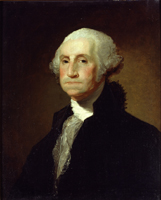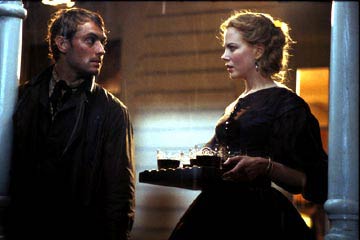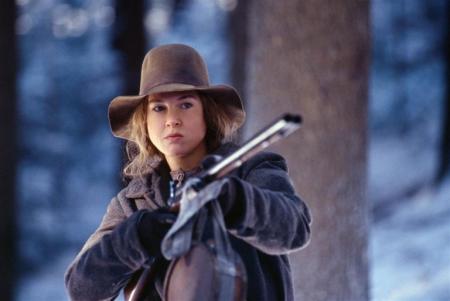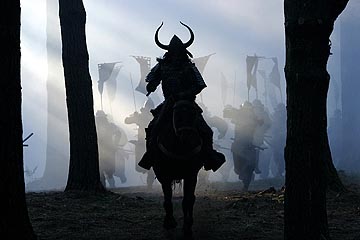For the historians and Dylanologists out there (or for those wondering why Dylan would contribute a new song to a flat-out stinker like Gods and Generals), here’s another intriguing passage from Bob Dylan’s Chronicles, on his early days in the archives as a Civil War enthusiast. (Besides Clausewitz, he also professes an admiration for Reconstruction-era Republican Thaddeus Stevens, who “championed the weak” and “made a big impression on me,” in a separate passage. (Chronicles, p. 40))
“I couldn’t exactly put in words what I was looking for, but I began searching in principle for it, over at the New York Public Library, a monumental building with marble floors and walls, vacuous and spacious caverns, vaulted ceiling. A building that radiates triumph and glory when you walk inside. In one of the upstairs reading rooms I started reading articles in newspapers on microfilm from 1855 to about 1865 to see what daily life was like. I wasn’t so much interested in the issues as intrigued by the language and rhetoric of the times. Newspapers like the Chicago Tribune, the Brooklyn Daily Times, and the Pennsylvania Freeman. Others, too, like the Memphis Daily Eagle, the Savannah Daily Herald, and Cincinnati Enquirer.
It wasn’t like it was another world, but the same one only with more urgency, and the issue of slavery wasn’t the only concern. There were news items about reform movements, antigambling leagues, rising crime, child labor, temperance, slave-wage factories, loyalty oaths and religious revivals. You get the feeling that the newspapers themselves could explode and lightning will burn and everybody will perish. Everybody uses the same God, quotes the same Bible and law and literature. Plantation slavecrats of Virginia are accused of breeding and selling their own children. In the Northern cities, there’s a lot of discontent and debt is piled high and seems out of control.
The plantation aristocracy run their plantations like city-states. They are like the Roman republic where an elite group of characters rule supposedly for the good of all. They’ve got sawmills, gristmills, distilleries, country stores, et cetera. Every state of mind opposed by another…Christian piety and weird mind philosophies turned on their heads. Fiery orators, like William Lloyd Garrison, a conspicuous abolitionist from Boston who even has his own newspaper. There are riots in Memphis and in New Orleans. There’s a riot in New York where two hundred people are killed outside of the Metropolitan Opera House because an English actor has taken the place of an American one. [Sic — 23 dead. Bob’s probably conflating the 1849 Astor Riot with the 1863 Draft Riots.] Anti-slave labor advocates inflaming crowds in Cincinnati, Buffalo, and Cleveland that, if the Southern states are allowed to rule, the Northern factory owners would then be forced to use slaves as free laborers. This causes riots, too.
Lincoln comes into the picture in the 1850s. He is referred to in the Northern press as a baboon or giraffe, and there were a lot of caricatures of him. Nobody takes him seriously. It’s impossible to conceive that he would become the father figure that he is today. You wonder how people so united by geography and religious ideals could become such bitter enemies. After a while you become aware of nothing but a culture of feeling, of black days, of schism, evil for evil, the common destiny of the human being getting thrown off course. It’s all one long funeral song, but there’s a certain imperfection in the themes, an ideology of high abstraction, a lot of epic, bearded characters, exalted men who are not necessarily good.
No one single idea keeps you contented for too long. It’s hard to find any of the neoclassical virtues, either. All that rhetoric about chivalry and honor — that must have been added later. Even the Southern womanhood thing. It’s a shame what happened to the women. Most of them were abandoned to starve on farms with their children, unprotected and left to fend for themselves as victims to the elements. The suffering is endless, and the punishment is going to be forever. It’s all so unrealistic, grandiose, and sanctimonious at the same time.
There was a difference in the concept of time, too. In the South, people lived their lives with sun-up, high noon, sun-set, spring, summer. In the North, people lived by the clock. The factory stroke, whistles and bells, Northerners had to “be on time.” In some ways the Civil War would be a battle between two kinds of time. Abolition of slavery didn’t even seem to be an issue when the first shots were fired at Fort Sumter. [Sic! Tell that to John Brown or Alexander Stephens. To be fair, though, elsewhere in Chronicles (pp. 74, 76), Dylan notes other theories for the war’s coming.]
It all makes you feel creepy. The age that I was living in didn’t resemble this age, but yet it did in some mysterious and traditional way. Not just a little bit, but a lot. There was a broad spectrum and commonwealth that I was living upon, and the basic psychology of that life was every bit a part of it. If you turned the light towards it, you could see the full complexity of human nature. Back there, America was put on the cross, died, and was resurrected. There was nothing synthetic about it. The godawful truth of that would be the all-encompassing template behind everything that I would write.
I crammed my head full as of much of this stuff as I could stand and locked it away in my mind out of sight, left it alone. Figured I could send a truck back for it later.” {Chronicles, pp. 84-86 — emphasis and paragraph breaks mine.)









